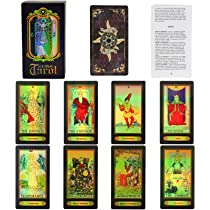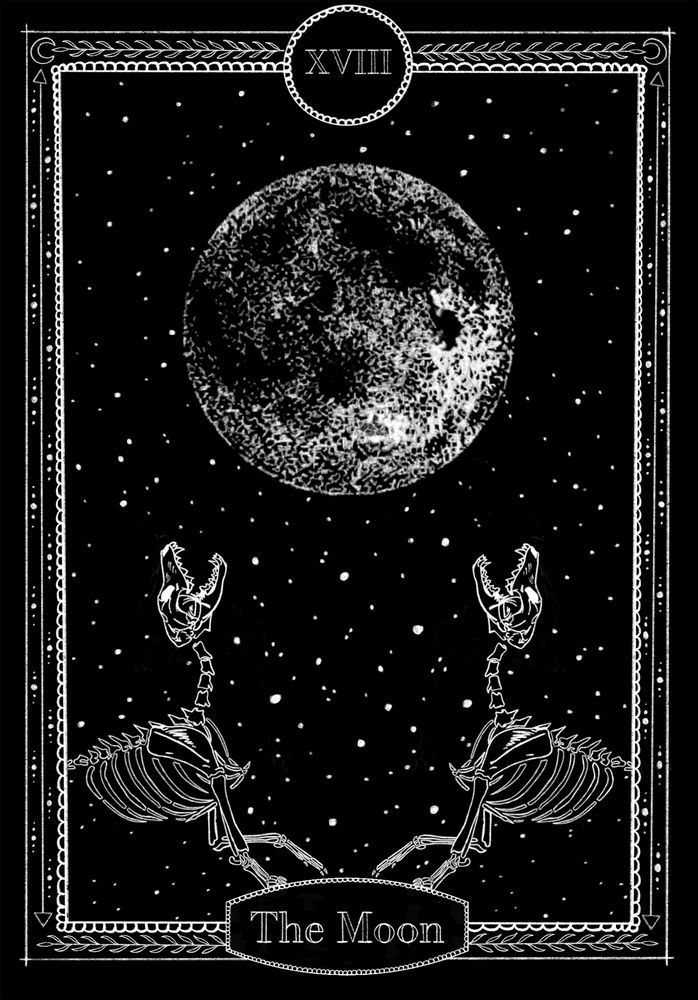
The Fool is one of the cards in tarot. It is associated with naivety. It is one of the 78 cards in a deck and part of the 22 Major Arcana. This card is sometimes numbered XXII. The Fool may represent youthful foolishness or unpredictability.
This card represents naivete
The Fool Tarot card portrays a young boy standing on the edge. He is on a quest, and is looking up. He is about to take a leap into the unknown. The modest bag he carries contains a white rose (and a white dog), which symbolises purity and loyalty. However, this image may not reflect reality. The Fool's Tarot meaning could also be translated as recklessness or overconfidence.
Young foolishness
There are many meanings for the Fool Tarot cards. It can represent youth, vigor and energy. It may also indicate a new start or a child. It can also mean an exploration of your spiritual life, and your willingness to try new things.

Unpredictability
The Fool tarot deck card represents those who take risks in life. It is important that one remembers to be fearless, and to listen to their intuition. It represents originality, and the ability to let go of stale things. The Fool tarot card is a good choice if you want to live life to the fullest.
Adventure
The Fool card in the Tarot can signify restlessness and a desire to travel. This card might suggest that you should consider quitting your job. This card can be used to indicate inner energy or the end of a phase. It's important that you are careful about your choices. Timing can be also indicated by the Fool.
Manipulation of commitment
In the tarot, the Fool card can have both negative and positive meanings. It can be a sign of a lack commitment and discipline. If the Fool appears upright, it may indicate that you are passionate, but upside-down indicates that it is not. The Fool can also signify a career change.
New beginnings
When you're seeking a new beginning, turn to the Fool tarot card. The Fool represents freedom, adventure and sincerity. It's also a symbol of new starts, new opportunities, and a new perspective.

Encouragement to leap of faith
The Fool Tarot card is a symbol of new beginnings and new opportunities. The Fool is a young man perched on the edge to take the first step in the unknown. He is a great symbol for trusting the unknown. The Fool inspires us to act, to be curious and to trust that the Universe will take care of our needs.
FAQ
What are some free resources I can use to learn more about hobbies
There are tons of websites devoted to helping people discover new hobbies.
Here are some of the favorites:
www.trythisathome.com - This site provides a list of over 100 different hobbies. It also includes information on how to get started on each one.
www.hobbyfinders.org -- This site provides a searchable database of thousands upon thousands of hobbies that you can browse by skill level, location and interest.
www.indiebazaar.co.uk - IndieBazaar is an online marketplace designed specifically for independent artists and musicians. The site features hundreds of products ranging from artwork to music gear.
www.pinterest.com/explore/hobbies - Pinterest is a social media network that lets users "pin" images they find interesting onto their boards. Boards let users organize what they like into particular categories.
www.reddit.com/r/Hobbies: Reddit, another social media platform, allows users to post links to articles and videos. Voting allows users to vote for the most valuable posts.
What are some hobbies that seniors might enjoy?
Senior citizens should enjoy engaging in fun activities. Senior citizens should keep active through participation in physical and sports activities.
They may be interested in joining clubs to find people with similar interests. As they age, this will help them feel less alone.
Senior citizens need to be aware of the latest trends. For example they could keep up to date with fashion, art music, literature, politics, and so forth.
What's a hobby?
Anything kids like to do that is not part of their daily routine is a hobby. They might like to draw pictures, build things, paint, write stories, play with toys, read books, watch TV, listen to music, play computer games, ride bikes, skateboard, swim, climb trees, run around outside, play football, basketball, volleyball, rugby, cricket, baseball, soccer, hockey, dodgeball, rounders, tag, hide and seek, hopscotch, marbles, jump rope, hopscotch and many others.
Many parents worry about their children getting into trouble if they have the freedom to do what they want. But this isn't always true. They won't get into trouble if your child is safe and does not cause harm to others or themselves.
It is important to remember that people may not always choose to do what they enjoy. For example, if they love drawing pictures but they hate writing, then they may decide to draw pictures instead of writing.
There are many types of hobbies. It's up to you to choose one that you really enjoy.
Statistics
- A new survey by Pew Research Center of teens ages 13 to 17 finds that 36% of girls feel tense or nervous about their day every day; 23% of boys say the same. (pewresearch.org)
- The intensity of the dialogue partners' bond at the end of the forty-five-minute vulnerability interaction was rated as closer than the closest relationship in the lives of 30 percent of similar students. (time.com)
- Studies show that just six minutes of reading can reduce stress levels by 60 percent. (oberlo.com)
- I am 100% biologically a woman (discover.hubpages.com)
- Much of this decline reflects the fact that teens are less likely to work today than in the past; among employed teens, the amount of time spent working is not much different now than it was around 2005. (pewresearch.org)
External Links
How To
How to begin gardening
Gardening is one the oldest forms. You need patience, perseverance, and determination. You must choose a suitable location to start your garden. It could be large land, or just your backyard. Next, you will need to decide which type of plants are best for you. Are you more fond of flowers or vegetables? Some people enjoy growing herbs and others prefer raising livestock like rabbits. Before you decide on the type of crops you want to plant, it is important to consider the space available. If you live somewhere that has cold winters, it might be a good idea to grow berries or fruits.
After choosing what you want to plant you need to prepare your soil. The soil is crucial in determining whether your plants thrive or not. High quality soil is rich in organic matter, which feeds your plants' roots. Organic matter includes organic matter such as leaves, twigs or grass clippings. You need nutrients to your soil after you have prepared it. Depending on the type of plants you plan to grow, you may need different amounts of nitrogen, phosphorus, potassium, calcium, magnesium, boron, zinc, copper, manganese, iron, molybdenum, chlorine, sulfur, sodium, and so on. Online fertilizer calculators can be used to determine these values. There are many fertilizers to choose from, so it is important that you are familiar with the product you are using.
Now you need to wait for the seeds to germinate. The process takes between 2 weeks and 3 months depending upon the climate in your area. Once the seeds have sprouted you will need to water them often. You can endanger your plants if you water them too often or too little. You should ensure that your plants get enough water at regular intervals. Avoid overwatering. Overwatering can result in root rot, fungal diseases, and even death. Consider that plants generally need less water in the warmer months than they do in winter. Some plants must be dried out after being watered. Tomatoes, for example, need to be kept moist but not too wet. Soggy soil is not a good choice for tomatoes. After the flowers have stopped, they must go into dormancy. Plants go dormant when they stop producing new growth and instead store energy for next year's harvest. Dormancy occurs when the plant stops sending signals that tell its roots to produce food. The plant continues to store energy during this time. If temperatures fall below freezing or the plants are not getting enough sunlight, they will die.
Living in urban areas may restrict the types of plants you can plant. Concrete sidewalks, roads or parking lots can block sunlight from reaching urban areas. Concrete absorbs light, preventing the soil underneath from getting adequate sun exposure. Because of this lack of sunlight, many plants cannot survive in cities. Many plants can still thrive in urban settings. Many perennials, trees, and shrubs are able to adapt to urban living. Many annuals can be grown indoors, too, in containers. Container gardens allow you to bring fresh greenery into your home year-round regardless of the weather outside.
You are now ready to plant your garden!